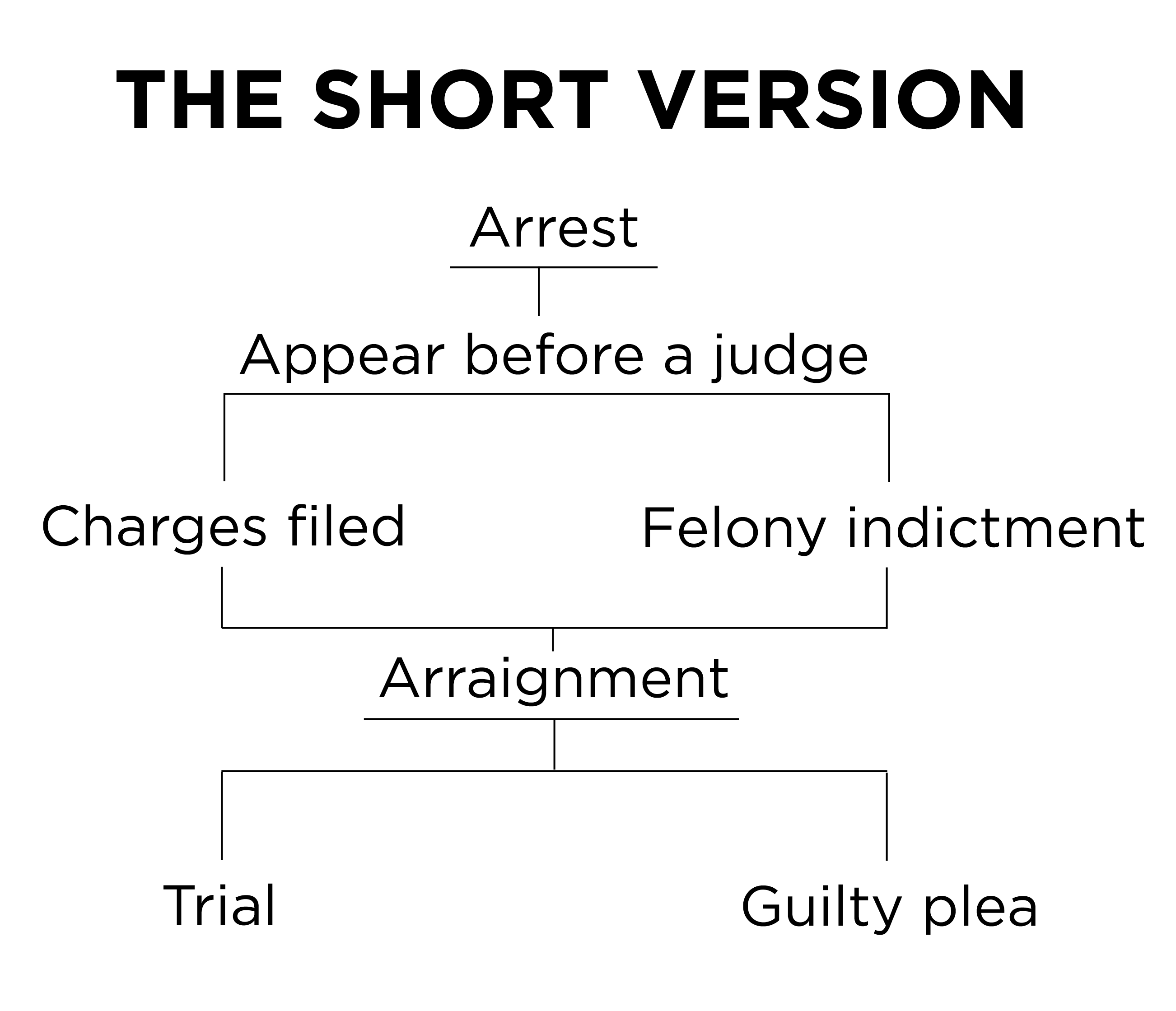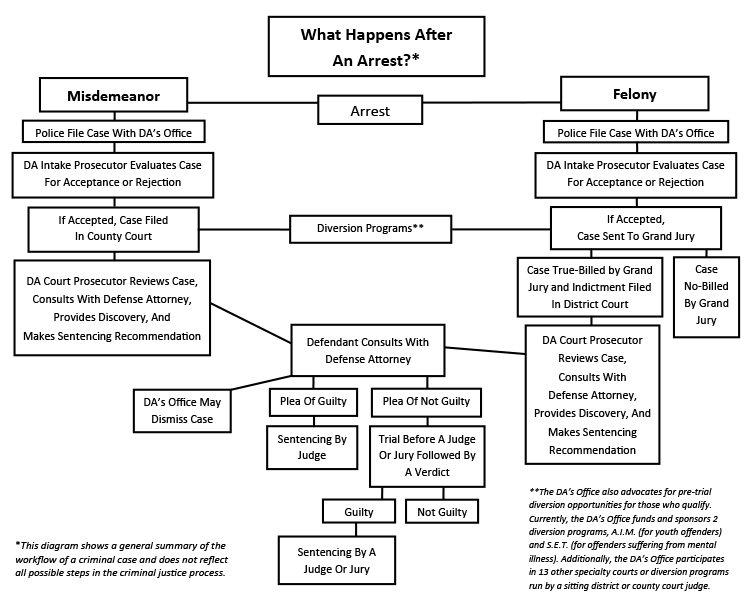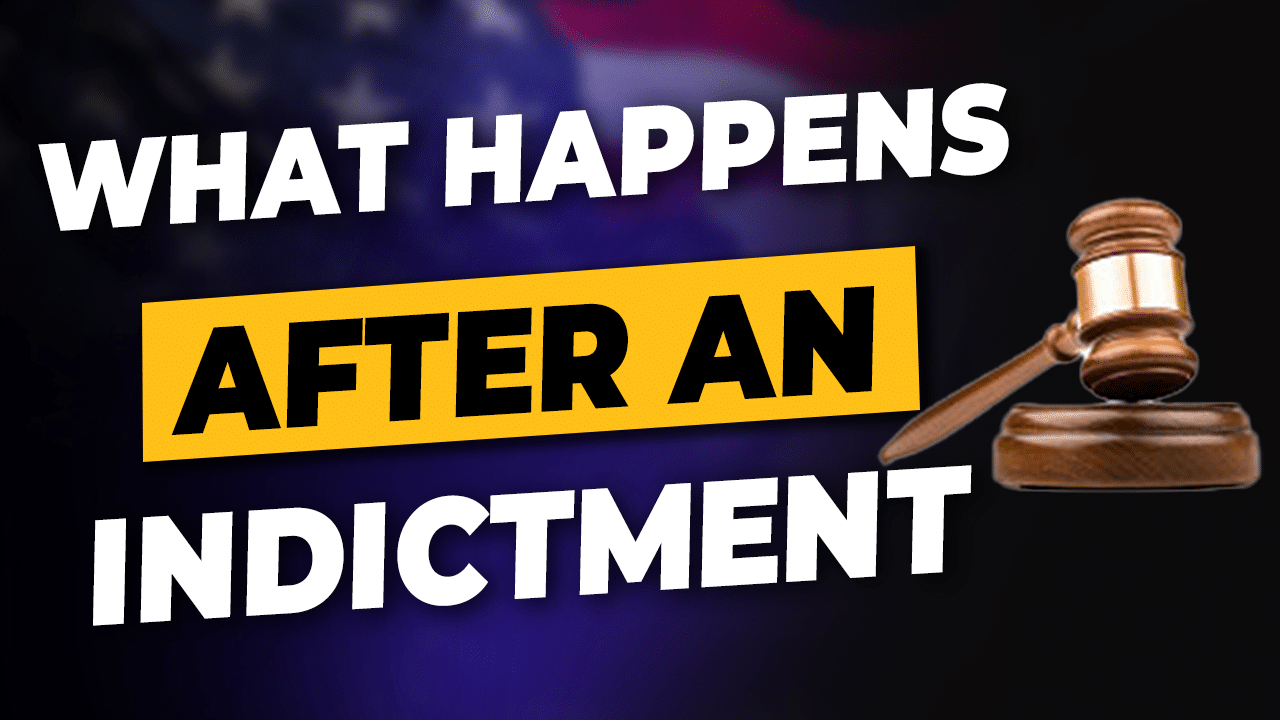what happens after a felony indictment
After a felony indictment, the accused individual appears in court for arraignment and may face trial. The process involves legal proceedings and potential sentencing if found guilty.
Felony charges are serious offenses that require thorough legal representation and defense strategies. It is crucial to understand the implications of a felony indictment, as it can have long-lasting consequences on one’s life and future opportunities. Seeking legal counsel and understanding the steps involved in the legal process are essential for navigating through a felony indictment successfully.
It is important to be aware of one’s rights and responsibilities during this challenging time.

Credit: www.dallasnews.com
Initial Steps Post-indictment
Following a felony indictment, the defendant typically attends an arraignment to enter a plea. Legal counsel prepares for pretrial motions and discovery. The defendant may seek plea negotiations or opt for a trial.
Arrest Or Voluntary Surrender
After a felony indictment, the accused may either be arrested or voluntarily surrender to the authorities. If the accused is aware of the indictment, it is recommended that they voluntarily surrender to avoid any surprises and to show their willingness to cooperate with the legal process. However, if the authorities have reason to believe that the accused may be a flight risk or pose a danger to the community, they may be arrested.Booking Process
Once the accused is in custody, they will go through the booking process. This involves being fingerprinted, photographed, and providing personal information such as name and address. The accused will also be searched and any personal belongings will be taken and held in storage until their release. It is important to note that during this process, the accused has the right to remain silent and the right to an attorney.Court Appearances
After the booking process, the accused will be scheduled to appear in court. The timeline for court appearances can vary depending on the severity of the charges and the court’s schedule. It is important for the accused to attend all court appearances as failure to do so may result in a warrant for their arrest.Legal Representation
It is highly recommended for the accused to seek legal representation as soon as possible. A skilled attorney can help navigate the legal process and work towards a favorable outcome for the accused. They can also advise the accused on their rights and guide them through the court appearances and any negotiations with the prosecution. In conclusion, the initial steps post-indictment can be overwhelming and stressful. However, with the guidance of legal representation and cooperation with the legal process, the accused can work towards a positive outcome.First Court Appearance
After a felony indictment, the defendant will make their first court appearance. The judge will inform them of the charges and their rights. The defendant may enter a plea, and the judge will set the next court date for further proceedings.
Understanding The Charges
After a felony indictment, the individual is formally accused of committing a crime. The indictment provides essential details about the charges.
The difference between being charged and being indicted lies in the level of evidence required. Being indicted means there is enough evidence to proceed with a formal charge.
Assigning Legal Representation
It is crucial to secure legal representation after a felony indictment. A competent attorney can help navigate the legal process and protect the individual’s rights.
Legal representation ensures that the accused receives fair treatment and a strong defense in court.
During the first court appearance after a felony indictment, the accused individual appears before a judge to hear the charges against them.
This initial court appearance sets the tone for the legal proceedings and allows the defendant to understand the gravity of the situation.
Bail And Pretrial Release
After a felony indictment, the defendant’s freedom and ability to prepare for trial are impacted. Let’s delve into the dynamics of bail hearings and the conditions for release.
Bail Hearing Dynamics
During a bail hearing, the judge determines whether the defendant should be released from custody before the trial. Factors such as the severity of the alleged crime, the defendant’s criminal history, and their ties to the community are considered. The prosecution may argue for a high bail amount or no release, while the defense seeks a reasonable bail or pretrial release conditions.
Conditions For Release
If the judge grants pretrial release, they may impose certain conditions to ensure the defendant’s compliance with the law and their appearance in court. These conditions could include regular check-ins with a pretrial services officer, electronic monitoring, travel restrictions, and refraining from contact with potential witnesses or co-defendants. The judge may also require the defendant to provide collateral or a surety bond as a guarantee of their appearance in court.
Arraignment Procedure
After a felony indictment, the next step in the legal process is the arraignment. This is a crucial stage where the defendant appears in court to enter a plea and set future proceedings.
Entering A Plea
During the arraignment, the defendant will be asked to enter a plea of guilty, not guilty, or no contest. If the defendant pleads guilty, the case will proceed to sentencing. If a not guilty plea is entered, the case will move to trial. A no contest plea has a similar effect to a guilty plea but cannot be used as an admission of guilt in civil proceedings.
Scheduling Future Proceedings
Following the plea, the court will schedule future proceedings, including pretrial conferences, motion hearings, and the trial date. The judge will also address any bail or release conditions for the defendant.
Discovery And Evidence
After a felony indictment, the discovery and evidence phase plays a crucial role in the legal process. This phase involves the exchange of information between the prosecution and defense, as well as the filing of motions to ensure a fair trial.
Exchange Of Information
During the discovery phase, both the prosecution and defense teams are required to exchange information related to the case. This includes sharing evidence, witness lists, and any other relevant information that may be used during the trial. This exchange of information is essential for both parties to prepare their cases and ensure transparency in the legal proceedings.
Filing Motions
Following the exchange of information, both the prosecution and defense have the opportunity to file motions with the court. These motions may pertain to the admissibility of evidence, requests for additional discovery, or other legal matters that can impact the outcome of the trial. Filing motions allows both parties to address any legal issues that may arise before the trial begins, ensuring that the proceedings are conducted fairly and in accordance with the law.
Pretrial Motions And Hearings
After a felony indictment, the legal process moves forward with pretrial motions and hearings. These critical stages allow the defense and prosecution to argue various legal issues before the trial begins.
Motion To Dismiss
A motion to dismiss is a request made by the defense to the court, asking for the case to be thrown out. This motion is typically based on legal deficiencies in the indictment, lack of evidence, or procedural errors.
Suppression Hearings
Suppression hearings are conducted to determine the admissibility of certain evidence. The defense may argue that evidence was obtained unlawfully and should be suppressed, while the prosecution seeks to demonstrate its admissibility.
The Role Of The Grand Jury
After a felony indictment, the role of the grand jury comes into play. They review the evidence presented by the prosecutor and determine if there is enough evidence to formally charge the accused with the crime. If indicted, the accused will either be arrested or permitted to surrender to law enforcement.
Reviewing Evidence
Before issuing an indictment, the grand jury plays a crucial role in the legal process by reviewing the evidence presented by the prosecution. They carefully examine the facts and testimony to determine if there is enough probable cause to move forward with formal charges.
Issuing An Indictment
Upon reviewing the evidence, if the grand jury believes that there is sufficient evidence to support the charges, they will issue an indictment. This formal document outlines the specific charges against the individual and signifies that the case will proceed to trial.
Trial Preparation
Following a felony indictment, trial preparation begins, involving evidence review, witness interviews, and legal strategy development. The defense and prosecution work diligently to build their cases for the upcoming court proceedings.
Strategy And Witness Lists
When preparing for a trial after a felony indictment, it is crucial to have a strong strategy in place. This includes determining which witnesses to call and what evidence to present. The defense team will need to carefully review all of the prosecution’s evidence and witness statements to identify any weaknesses or inconsistencies. They will also need to compile a list of witnesses to call in support of the defendant’s case.Jury Selection Process
One of the most important aspects of trial preparation is the jury selection process. This involves selecting a group of impartial jurors who will be able to make a fair and unbiased decision based on the evidence presented at trial. The defense team will need to carefully review potential jurors’ backgrounds and opinions to determine whether they would be suitable for the case.Witness Lists
The defense team will also need to compile a list of potential witnesses to call at trial. This may include witnesses who can testify about the defendant’s character, as well as expert witnesses who can provide testimony on technical or scientific issues relevant to the case. It is important to ensure that all witnesses are properly prepared and ready to testify in court. In conclusion, preparing for a trial after a felony indictment is a complex and challenging process. It requires a strong strategy, careful jury selection, and a thorough review of all evidence and witness statements. By taking the time to prepare properly, the defense team can increase the chances of a successful outcome for their client.The Trial
Once the trial begins, the prosecution and defense teams present their cases through various stages, including opening statements and the presentation of evidence.
Opening Statements
The trial commences with both the prosecution and defense delivering their opening statements, outlining their theories of the case and what they intend to prove.
Presentation Of Evidence
Following the opening statements, the presentation of evidence takes place. Both sides present witnesses, physical evidence, and other relevant materials to support their arguments.

Credit: www.dallascounty.org
Post-trial Motions And Sentencing
After a felony indictment, the defendant’s legal team can file post-trial motions to challenge the verdict or sentence. These motions can lead to a new trial or a reduction in the sentence. The sentencing phase follows the trial, where the judge determines the appropriate punishment based on the severity of the crime and other relevant factors.
Filing Appeals
After a felony indictment, the defendant may file appeals to challenge the conviction or sentence. Appeals must be based on legal errors during the trial.Sentencing Hearing
At the sentencing hearing, the judge considers various factors to determine the appropriate punishment for the convicted individual.Filing Appeals
Sentencing Hearing
Consequences Of A Felony Conviction
After a felony conviction, individuals face significant challenges that can have lasting impacts on their lives. From restrictions on civil rights to long-term repercussions, the consequences of a felony conviction are profound and far-reaching.
Impact On Civil Rights
Conviction of a felony can lead to the loss of various civil rights, such as the right to vote, hold public office, serve on a jury, and possess firearms. These restrictions can vary by state and may be temporary or permanent.
Long-term Repercussions
Aside from immediate penalties like incarceration and fines, a felony conviction can have long-lasting effects on an individual’s future. It can impact employment opportunities, housing options, educational pursuits, and even personal relationships.

Credit: prisonprofessors.com
Appeal Process
The appeal process is a critical stage that follows a felony indictment, providing individuals with the opportunity to challenge the outcome of their case. Understanding the grounds for appeal and the appeals court review is essential for those seeking to overturn a conviction.
Grounds For Appeal
Grounds for appeal typically include errors in legal procedure, misconduct by the prosecution, or newly discovered evidence that could impact the case outcome. A strong legal argument is crucial for a successful appeal.
The Appeals Court Review
During the appeals court review, a panel of judges examines the trial court proceedings to determine if any errors were made that affected the fairness of the trial. This review is focused on ensuring that the legal process was followed correctly and that the defendant’s rights were upheld.
Frequently Asked Questions
What Does It Mean To Be Under Indictment?
Being under indictment means being formally accused of committing a crime based on evidence presented to a grand jury.
What Is The Difference Between Charge And Indictment?
Being charged means accused of a crime, while being indicted means formally charged by a grand jury based on evidence.
How Long Can A Felony Charge Be Pending In Texas?
In Texas, a felony charge can be pending for up to three years in most cases. The duration may vary depending on individual circumstances.
How Long Does It Take To Get A Court Date For A Felony In Texas?
In Texas, the time to get a court date for a felony varies. It can range from days to months, depending on custody status.
Conclusion
After a felony indictment, legal proceedings will continue with court dates set. Understanding the timeline is crucial, as charges can be pending for up to three years. The difference between being charged and indicted lies in the formal process following the grand jury’s decision.
It’s important to navigate this process with legal guidance.

